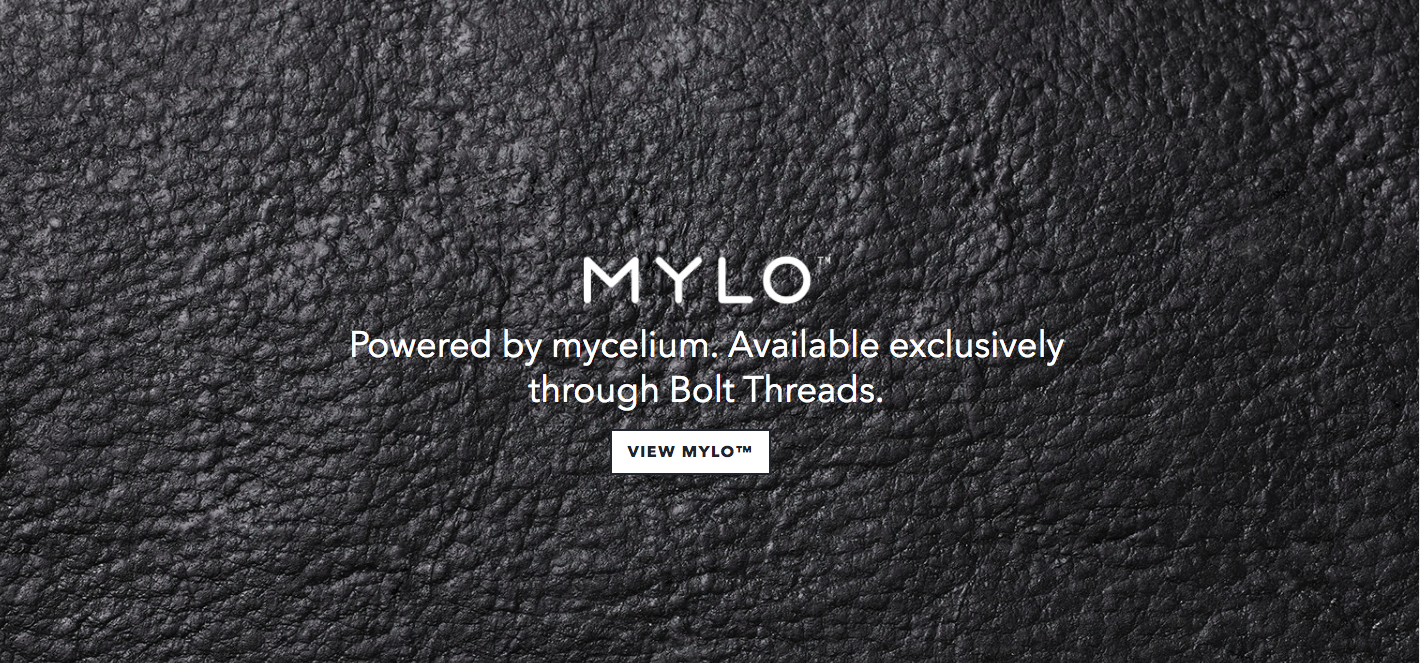There’s a new world of lab-grown replacements coming for everything, from the meat department in your grocery store to a department store near you.
Lab-made leather replacements will soon join vegetable-based meat replacements on store shelves thanks to startups like Bolt Threads, which today announced that it would join companies like Modern Meadow in the quest to bring to market vegetable-based replacements for animal hides.
Earlier this year, the Silicon Valley-based Bolt Threads raised a $123 million financing to expand its business beyond the manufacture of spider silk, which had brought the company acclaim — and an initial slate of products.
The announcement today of its new product, Mylo, is the first step on that path.

Working with established partner Stella McCartney and using technology licensed from the biomaterials company Ecovative Design, Bolt is bringing Mylo’s mushroom-based leather replacement to the world in a debut of one of McCartney’s Falabella bag designs made from the mushroom material.
The first bag will be available at the Victoria and Albert Museum’s Fashioned from Nature exhibit, open to the public on April 21st in London.
In an interview with Fast Company last year, McCartney discussed her commitment to sustainability. “I don’t think you should compromise anything for sustainability,” McCartney told the magazine. “The ultimate achievement for me is when someone comes into one of my stores and buys a Falabella bag thinking it’s real leather.”
While Bolt Threads is licensing its technology from Ecovative Design, Modern Meadow is choosing to develop its own intellectual property for growing a replacement leather.
Taking a different path to its California-based competitor, Brooklyn’s Modern Meadow model is going for a mass market while Bolt Threads is more bespoke.
The East Coast company partnered with the European chemical giant Evonik — and has raised more than $40 million dollars from billionaire backers like Peter Thiel’s Breakout Ventures and Horizons Ventures (financed by Li Ka Shing — one of China’s wealthiest men) — along with the Singaporean investment giant, Temasek.
Both companies are examples of how animal husbandry is being replaced by technology in the search for a more sustainable way to feed and clothe the world’s growing population. It’s a population that’s demanding quality goods without sacrificing sustainable industrial practices — all things that are made possible by new material — and data — science, along with novel manufacturing capabilities that show promise in taking things from the laboratory to the heart of the animal industries they’re looking to replace.
This is a pattern that’s not just happening in fashion, but being replicated in food science, as well.
How quickly the change will come — and how viable these alternatives will be — depend on them scaling to meet a broad consumer demand. One purse in a museum show isn’t enough. Once there are hundreds of handbags on Target shelves — that’s when the revolution won’t need to be televised, because it will already have been commercialized.
from Startups – TechCrunch https://ift.tt/2HEsXNg
via IFTTT
No comments:
Post a Comment
Thank You for your Participation